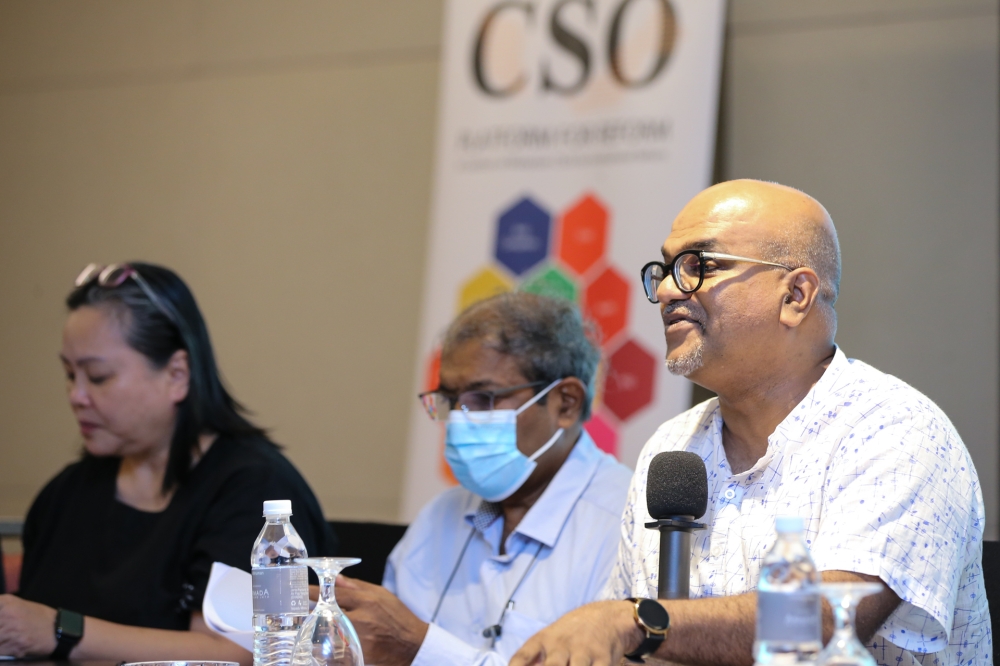KUALA LUMPUR, Dec 4 — Prime Minister Datuk Seri Anwar Ibrahim’s administration has made strides in implementing crucial reforms, particularly notable in the abolition of the death penalty while his Madani framework has received acclaim for its inclusivity, fairness, and equity.
Reform advocacy group CSO Platform for Reform, in its one-year government performance review, commended the Madani economic framework whose initiative aims to enhance transparency in managing public finances and fiscal risks, especially concerning revenue, expenditure, loans, and debt with the enactment of the Fiscal Responsibility Act in October.
“From October 2022 to October 2023 the platform was able to engage with Anwar’s government at 36 per cent compared to 17 per cent for the same duration of 12 months (October 2021 to October 2022) with Datuk Seri Ismail Sabri Yaakob’s government.
“This is a 19 per cent increase in strategic activities which showed that the space for reform agenda discussion is more encouraging and that it is a better time for civil society to engage with stakeholders,” said the platform’s steering committee chairman Jerald Joseph.
The report focused on four key areas: governance leadership reforms, parliament and state legislative assembly reforms, institutional reform, and key law and policy reforms.
Parliament and state legislative reform were acknowledged positively, with the establishment of 10 parliamentary Special Select Committees, an increase in motions during special chamber sessions, and the introduction of PMQT (prime minister question time) and MQT (minister question time).
In terms of governance, Anwar’s initiatives to include more women as directors in public-listed companies and the proposal of the Public Defenders Act, aimed at improving criminal legal aid services for those in need, were applauded as sound governance leadership reforms.

Policy reforms, such as amendments to enhance child protection laws and increased allocations to East Malaysia, were recognised as key steps in the right direction. However, the report also highlighted concerns regarding certain institutional reforms, including the proposal to place the Malaysian Anti-Corruption Commission under the supervision of the Enforcement Agency Integrity Commission.
To add to that, the delay in the separation of powers between the Attorney General’s Chambers and the Public Prosecutor’s Office was noted, and criticisms arose over Deputy Prime Minister Datuk Seri Ahmad Zahid Hamidi’s DNAA (discharge not amounting to acquittal) on all 47 corruption charges. This raised questions about the motives behind the decision and brought scrutiny to the government’s approach to corruption cases involving senior politicians.
Moreover, the report pointed out that Anwar, holding the position of finance minister despite his previous stance against the prime minister simultaneously holding the finance portfolio, raised concerns. The government’s lack of action on undemocratic laws like the Sedition Act 1948, Printing Presses Act 1984, Security Offences (Special Measures) Act 2012, Official Secrets Act 1972, Communication and Multimedia Act 1998, and the Universities and University Colleges Act 1971 was also highlighted.
The group expressed disappointment over Anwar’s statement on CNN declaring that the lesbian, gay, bisexual, transgender and queer (LGBT) community would not be recognised in Malaysia despite him saying that harassment would not be tolerated.
Jerald emphasised the need for the Madani government to exert more effort to ensure the implementation of substantial reforms, especially considering the sluggish economic growth and rising inflation.
“Legislation that stifles criticism and dissent remains in effect and the Malaysian government has encountered persistent challenges in effectively addressing corruption and accountability concerns,” said Jerald.
Jerald concluded by stating that progress in the core priority areas had been slower than anticipated, resulting in public disillusionment and a decline in the prime minister’s approval rating to 50 per cent.
Last month, independent pollster Merdeka Center said Anwar’s personal approval rating has slipped to 50 per cent amid rising concern over the performance of Malaysia’s economy and 48 per cent of respondents said they were now unhappy with how the Anwar administration was performing.
The Anwar administration will commemorate its first anniversary this Friday.






















